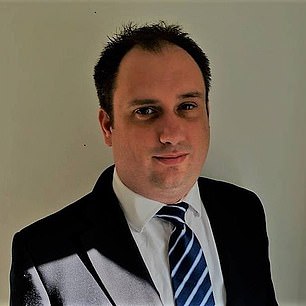I have been offered a casual job that works on an ad hoc basis. I could work for five days a month, and then have nothing for two months.
My plan is for this work to pay me an income until April and then I’ll stop, meaning I won’t earn more than the £12,570 threshold for paying income tax.
Do I still have to inform HMRC for tax reasons?
I know I will be paying National Insurance on anything above £242 – do I pay this yearly via HMRC?
I asked the workplace if I need to set myself up as a company for HMRC.
They said typically self-contractors do set up companies for tax reasons. They said that I would be invoicing, nothing would be taken at source and I’d be responsible for tax, NI etc. I am three years from retirement at 65. A.C, via email

If you earn less than the £12,570 personal allowance, do you need to tell HMRC?
Angharad Carrick of This Is Money replies: The tax system can be over-complicated and confusing for the average person.
When you’re getting to grips with setting out as self-employed, it can prove a daunting hurdle.
If you’re making any kind of income, there is usually some tax associated with it. If you’re employed this is usually on your wages and is taxed at source.
If you run your own business you will also need to pay tax, as well as on interest and dividends from savings and investments, and rent if you’re a landlord.
However, you don’t usually pay income tax on all taxable income because of tax thresholds.
The personal allowance is currently set at £12,570 for the 2022/23 and 2023/24 tax year.
You say you will earn less than this amount, meaning in theory you will not have to pay any tax on your income.
However, you will still need to notify HMRC that you are earning and register for self-assessment.
We asked Ian Futcher, a tax expert and financial planner at the wealth management firm Quilter, to explain what you should do.

Quilter’s Ian Futcher says if you’re self-employed and earning over £1000 you’ll need to register as a sole trader
Ian Futcher, financial planner at Quilter says: When you’re embarking on ad hoc work in the UK, there are several tax considerations to keep in mind, especially as you approach retirement.
If you’re earning more than £1,000 from self-employment between April 6 2022, and April 5 2023, you need to register as a sole trader with HMRC and file a self-assessment tax return each year.
In your case, if £12,500 is your only income, you generally won’t have to pay Income Tax or National Insurance.
As a self-employed individual, you’ll only pay National Insurance if your profits exceed £12,570 a year.
However, as an employee, National Insurance is due on weekly earnings above £242 from one job.
Angharad Carrick says: NI contributions are used to pay for state benefits and the state pension.
If you’re self-employed and your profits are £12,570 or more a year, you usually pay Class 2 and Class 4 National Insurance rates.
The Class 2 rate is £3.45 a week and Class 4 is 9 per cent on profits between £2,570 and £50,270, and 2 per cent on profits over £50,270.
In the Autumn Statement, the Chancellor announced he would reduce the main rate of NICs by 1p and abolish Class 2 contributions entirely.
However, this will only take effect in April.
The key thing about self-assessment is that it isn’t a tax, but a way of paying it.
You are responsible for completing a tax return every year you need to, and it is up to you to tell HMRC if you think you need to complete a tax return.
The only times you don’t need to do a tax return is if your tax is already paid via PAYE (i.e if you’re in full time employment) or if you earned less than £1,000.
Your tax return should include all taxable income, and you can also claim any allowances or reliefs that you’re entitled to.
> Who needs to file a tax return this month?
Ian Futcher says: Being a sole trader allows you to deduct allowable business expenses, which might reduce your taxable income even below the £12,500 threshold.
Regarding your state pension, it’s important to check if you currently qualify for it. This typically requires 35 years of National Insurance contributions.
If you’re short on contributions, you might want to consider making voluntary contributions to ensure you receive the full state pension upon retirement.
As for setting up a company, for earnings below £12,500, being a sole trader might be more beneficial if your employer allows it.
The costs involved in setting up and running a limited company can be high, including corporation tax (as companies do not have a personal allowance) and potential fees for hiring an accountant.
Additionally, as an employee of your own company, you would be liable to pay National Insurance.
In contrast, as a sole trader, there are no set-up costs, and you can still deduct allowable business expenses. This typically results in no National Insurance liability if your income is only £12,500.
This route seems easier, but it’s subject to your income not exceeding £12,500.
Angharad Carrick adds: Once you have registered for self-assessment, you will want to keep a record of everything to make filling out your tax return next January a much easier process.
Some links in this article may be affiliate links. If you click on them we may earn a small commission. That helps us fund This Is Money, and keep it free to use. We do not write articles to promote products. We do not allow any commercial relationship to affect our editorial independence.



